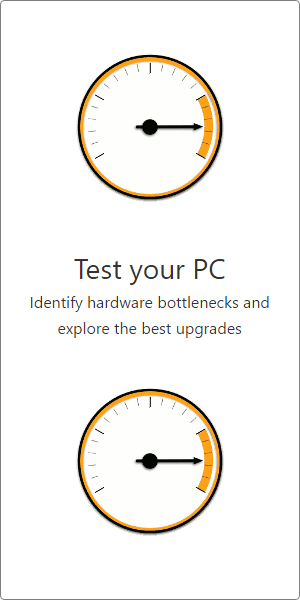Effective Speed
+58%
Poor: 54%
Great: 74%
SPEED RANK: 506th / 1468
| Effective Speed
Effective CPU Speed |
104 % | Much faster effective speed. |
65.9 % |
Average Score
+118%
Overclocked Score
+101%
Value & Sentiment
+169%
Nice To Haves
+214%
Conclusion
Average Bench 104%
Average Bench 65.9%
User Builds
23,248
36,389
Systems with these CPUs
Top Builds that include these CPUs
Frequently Asked Questions
Processors FAQ
ALL FAQs »

 CPU
CPU
